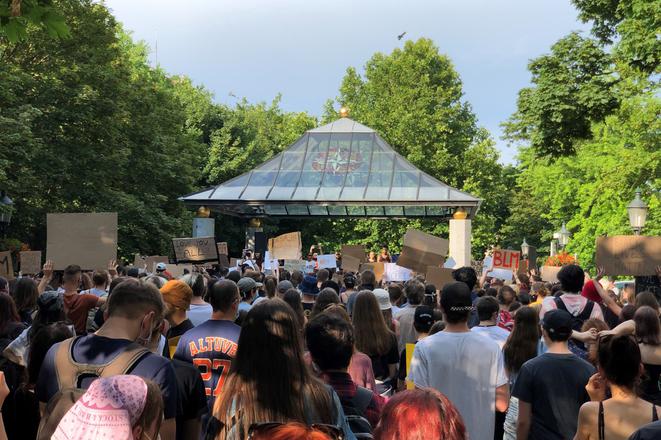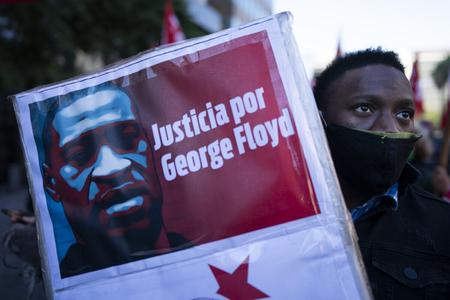More than 25,000 people marched from Selma, Alabama, to the state’s capital of Montgomery to demand the right to vote for black Americans in 1965. The third and final march was led by civil rights activist Martin Luther King Jr.
“My parents did not participate, but I saw Martin Luther King Jr. pass through Selma the third time because he walked right past our home on his way to Montgomery,” said Miles White, an American musician and writer who lived in Bratislava for ten years before moving to Hungary in 2019.
As a child, White had witnessed a brief snippet of one of the most groundbreaking moments in American history, but in his eyes, the protests that have erupted worldwide following the May 25, 2020 homicide of George Floyd, a black man, by white police officer Derek Chauvin in Minneapolis, Minnesota, are even bigger than the civil rights movement.
Generations-long conversation
Murder of George Floyd
After buying cigarettes at a convenience store with a counterfeit $20 bill on May 25, 2020, in Minneapolis, MN, Floyd was arrested by Chauvin, who knelt on his neck for almost nine minutes, during the last three minutes of which Floyd was motionless and pulseless. In a video of the arrest widely circulated on social media, Floyd, who was handcuffed, repeatedly says “I can’t breathe”. Chauvin has since been charged with second-degree murder while the three other officers on the scene have been charged with aiding and abetting second-degree murder.
The murder of Floyd has reignited a generations-long conversation on police brutality and racism in the USA and elsewhere, further fueled by the recent police killings of Rayshard Brooks, Breonna Taylor, and countless others. Protests, widespread social media campaigns and pleas for systemic reform from the American public, as well as top officials and politicians, can be heard around the world, including in Slovakia.
“It is amazing to see people come out from under [Donald] Trump’s watch and spawn this amazing movement across the country and other parts of the world,” said White. “It has really been just an astonishing thing to watch from over here.”
The Slovak Spectator reached out to the American community in Slovakia a week after the murder of Floyd. Within a day, close to a dozen people had responded. Some were educators and parents; some were Minnesota natives; some had experienced an America where black and white people were segregated by law.



